News Highlights
Contact Inga Kiderra, Director of Communications, at ikiderra@ucsd.edu or 858-822-0661
Five Tips on How to Have a Civil Conversation
Civility is fine — but curiosity is even better, says Gail Heyman of Psychology. A “civil conversation” is often misunderstood to mean keeping quiet for the sake of keeping the peace. But that’s not productive. It also doesn’t mean putting on a smile while resentment simmers. “We learn through disagreement,” says Heyman. “We learn by being challenged.”
 UC San Diego Alumnus Honors Cognitive Science Pioneers with Endowed Chairs
UC San Diego Alumnus Honors Cognitive Science Pioneers with Endowed Chairs
UC San Diego, home of the world’s first Department of Cognitive Science, will further expand its leadership in the field thanks to a $4 million gift establishing what will collectively be known as the Glushko Chairs in Cognitive Science. UC San Diego alumnus Robert J. Glushko, Ph.D. and Pamela Samuelson established the four endowed faculty chairs in honor of transformational scholars whose work shaped both modern cognitive science and Glushko’s own career.
 Echoes of Our Origins
Echoes of Our Origins
Shirley Strum of Anthropology has published a new book, “Echoes of Our Origins: Baboons, Humans, and Nature,” chronicling her 50-year journey of living among baboons and studying them. Published by Johns Hopkins University Press, the book explores what her findings can tell us about primates, resilience and human coexistence.
From Classroom to Courtroom Faster: UC San Diego and USD School of Law Launch Accelerated Pathway
For students at the University of California San Diego dreaming of a legal career, the road to law school just got shorter — and a lot more certain. UC San Diego and the University of San Diego School of Law have partnered to create the Accelerated Pathway to USD School of Law, a new opportunity that allows high-achieving UC San Diego undergraduates to earn both their bachelor’s and law degrees in six years instead of seven.

Transforming Computer Science Education in the Age of AI
Educators, education researchers and computer scientists are teaming up as part of a consortium led by UC San Diego to reshape the future of computer science education in the era of generative AI. At UC San Diego, the new GenAI in CS Education Consortium – supported by $1.8 million from Google.org – brings together researchers from the School of Social Sciences and the Jacobs School of Engineering and is run in collaboration by faculty from both units, alongside faculty at the University of Toronto. The consortium is housed in the UC San Diego Center for Research on Education, Assessment, and Teaching Excellence (CREATE), an educational policy and outreach center in the School of Social Sciences.
 2025 Revelle Medal Recipients Announced
2025 Revelle Medal Recipients Announced
Kudos to David Lake of Political Science for being one of the 2025 recipients of the Revelle Medal, the highest honor awarded by the university to recognize current or former faculty members for sustained, distinguished and extraordinary service to the campus.
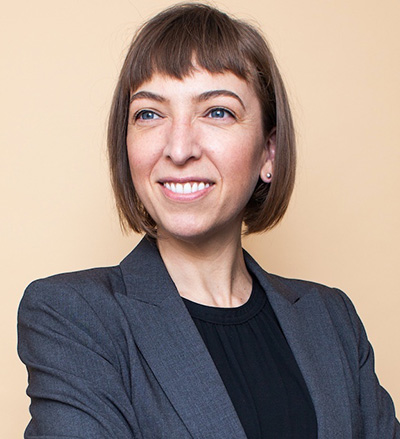 Why Are People Lining Up for Labubus? An Expert Breaks Down the Pop Culture Craze
Why Are People Lining Up for Labubus? An Expert Breaks Down the Pop Culture Craze
In this Q&A with UC San Diego Today, Caroline Jack of Communication shares how social media and scarcity-driven marketing have led to the explosive popularity of Labubus. “What looks like overnight viral success can be the result of strategic promotional planning.
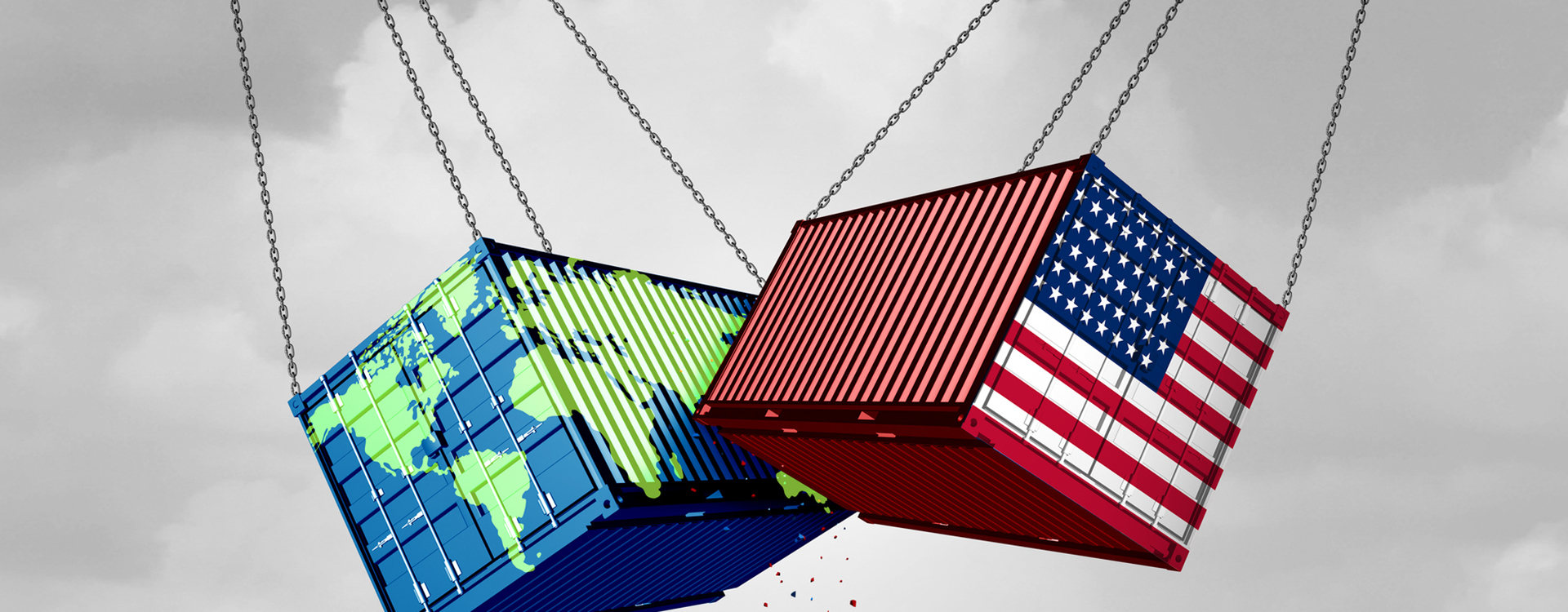 Tariffs, Explained — and Explored
Tariffs, Explained — and Explored
How are tariffs being used today as tools of foreign policy? Who stands to benefit from tariffs, and who tends to lose? Lawrence Broz of Political Science and Marc Muendler, chair of Economics, answer these questions and more in this UC San Diego Today panel. “Moderate tariffs do protect U.S. jobs in industries that matter to us,” said Muendler. “But when you add up all the economic effects, the typical resident in every single state will see their real income decline under the proposed tariffs.” Broz added that the U.S.’s new "reciprocal tariffs” are “eroding decades of multilateral cooperation and creating levels of economic uncertainty not seen since the 1930s.”
Largest Cohort in UC San Diego Program’s History Receives Hellman Fellowships
Four assistant professors from Social Sciences have received Hellman Fellowships: John C. Arroyo of Urban Studies and Planning, Dhananjay Bambah-Mukku of Psychology, Deepti Chatti of Urban Studies and Planning and Critical Gender Studies, and Roy Perez of Ethnic Studies. The fellowship provides vital support to early career faculty who have not yet been granted tenure.
 The Next Chapter: At 96, Memory Research Pioneer and Former UCSD Chancellor Refuses To Let His Mind Retire
The Next Chapter: At 96, Memory Research Pioneer and Former UCSD Chancellor Refuses To Let His Mind Retire
The San Diego Union-Tribune profiled Psychology and Cognitive Science professor emeritus Richard Atkinson about the legacy of his groundbreaking memory research, the importance of federal funding in higher education, and his daily routine – golfing, keeping up with scientific advances, and connecting with University of California colleagues. “The private sector is responsible for applied research, but you can’t expect them to invest appropriately in basic research because the payoffs are too uncertain,” Atkinson said. “It’s the responsibility of the government to fund it through a competitive, peer-reviewed process.” Atkinson’s impressive career spans a stint as director of the National Science Foundation under President Carter, 15 years as chancellor of UC San Diego, and eight years as president of the UC system.
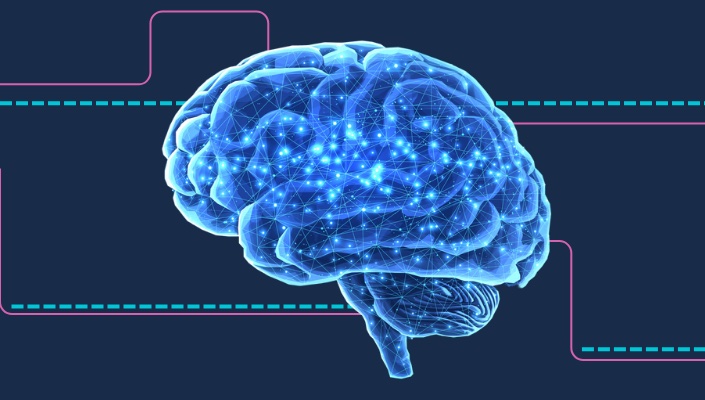 7 UC San Diego Discoveries That Changed the World
7 UC San Diego Discoveries That Changed the World
UC San Diego Today featured “the cognitive model that laid the foundation for AI” by spotlighting work begun at our university in the 1970s and 80s, when Geoffrey Hinton – now known as the “godfather of AI” for his pioneering work in artificial intelligence – conducted postdoctoral research in the Department of Psychology alongside David Rumelhart and James McClelland. Their work produced the Parallel Distributed Processing (PDP) framework, which became the foundation for modern neural networks, including the large language models that power ChatGPT. Hinton also worked with Terrence Sejnowski on Boltzmann machines and received the 2024 Nobel Prize in Physics.
Miguel Marin Named 2025-26 San Diego County Teacher of the Year
Congratulations to Education Studies graduate-student alum Miguel Marin ’08 on being named San Diego County Teacher of the Year! Each year, only five educators from across the region receive this distinction. Marin, a middle school science teacher, was also named District Teacher of the Year for Sweetwater Union High School District in 2025 and 2017.
7 San Diego Scholars Elected to American Academy of Arts and Sciences
The San Diego Union-Tribune highlighted Social Sciences Dean Carol Padden of Communication, Associate Dean of Social Sciences Amanda Datnow of Education Studies, and James Hamilton of Economics, who are 3 of 6 UC San Diego faculty elected in 2025 to the American Academy of Arts and Sciences.
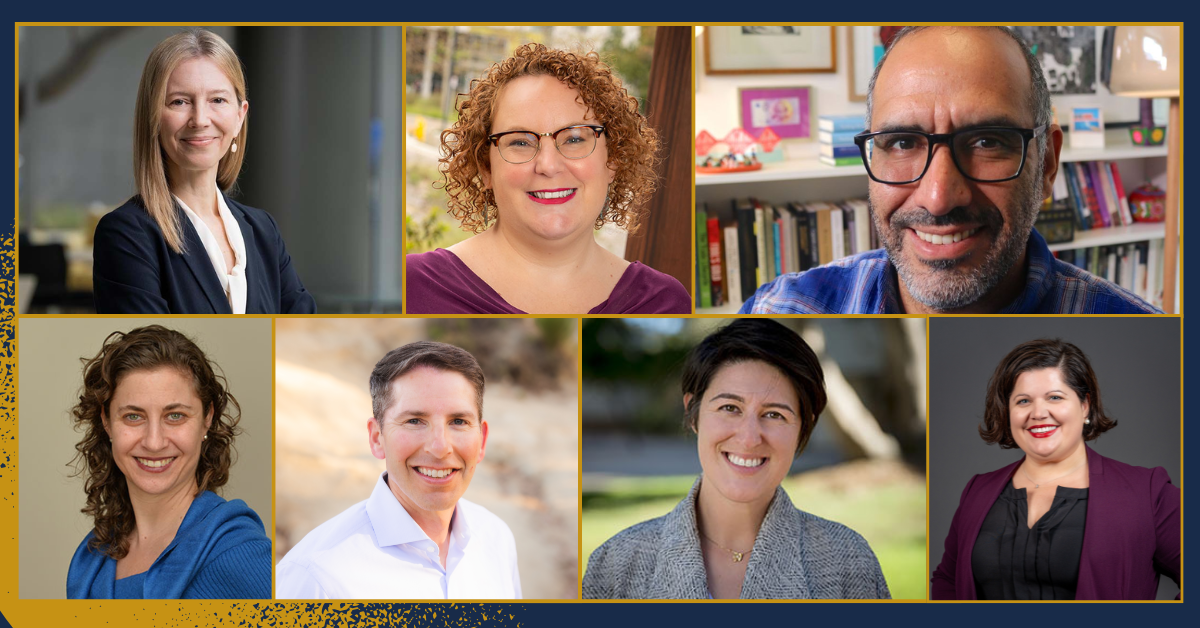 Shaping the Future Together: Announcing the 2025 Convene and Influence Awardees
Shaping the Future Together: Announcing the 2025 Convene and Influence Awardees
Five of seven initiatives honored by the 2025 Strategic Convene and Influence Awards are led and/or supported by Social Sciences faculty. Awarded principal investigators (PIs) include Juan Pablo Pardo-Guerra of Sociology, Lilly Irani of Communication, Amy Lerner of Urban Studies & Planning, and Benjamin Bergen of Cognitive Science. Co-PIs include Elana Zilberg and Stuart Geiger of Communication, Abigail Andrews of Urban Studies and Planning, Margaret Roberts of Political Science, Haijun Xia of Cognitive Science, and Satomi Rash-Zeigler of the UC San Diego Labor Center. The focus of each Social Sciences-led project: building global connections to enhance international scholarship; finding inclusive ways to implement AI into workplaces; utilizing the Climate Action Lab to prepare students for climate-related careers; and unpacking the social, economic and ethical impacts of AI.
This Bespoke AI Tutor Helps Students Learn
The Laboratory for Emerging Intelligence (LEI), where Leon Bergen of Linguistics serves as associate director, developed an AI tutor trained on course-relevant materials to provide students with extra learning support, rather than just giving out answers to problems like ChatGPT and other large language models usually do. LEI works to develop and deploy next-generation AI systems to advance applications in science, medicine, business and education.
 Ask a Psychologist: Why Do We Fall for Fake News?
Ask a Psychologist: Why Do We Fall for Fake News?
In this Q&A with UC San Diego Today, Nadia Brashier of Psychology shares why we come to believe things that are untrue and how to protect vulnerable populations from misinformation. “When we scroll through our feeds on social media, we are not always thinking about truth,” Brashier explains. “Repeated content feels easier to process than new content, and people misinterpret this subjective ease as evidence of truth.”
The Myth of the Poverty Trap
Paul Niehaus of Economics appeared on The Atlantic’s “Good On Paper” podcast to discuss how the global rate of extreme poverty fell from 44 percent in 1981 to just 9 percent in 2019. “There’s no one story,” Niehaus said. “You see people getting out of poverty while moving to the city. You see a lot of people getting out of poverty while staying where they are. You see a lot of people getting out of poverty while not switching from agriculture into nonagriculture. And also, the stories are different in different countries.”
 SoCal LINK Leverages the Power of a Triangle To Transform Schools
SoCal LINK Leverages the Power of a Triangle To Transform Schools
SoCal LINK, a research-practice partnership led by the Department of Education Studies, brings together researchers, educators and community partners to shape the future of PreK-12 education in Southern California. The program was launched by Education Studies faculty Alan Daly and Amanda Datnow, associate dean of Social Sciences, and postdoctoral researcher Marie Lockton, a doctoral alum of the department. “This represents the next generation of partnership work that holds promise for our region and beyond. The future of educational transformation…is about strong and robust ecosystems,” Daly said.
News Highlights
Contact Inga Kiderra, Director of Communications, at ikiderra@ucsd.edu or 858-822-0661
Previous News Highlights
Ralina Joseph Named UCLA’s Vice Provost for Inclusive Excellence
Ethnic Studies doctoral alum Ralina Joseph, currently a professor of communication at the University of Washington, has been named UCLA’s next vice provost for inclusive excellence. Joseph has written several books on race, including the award-winning “Postracial Resistance: Black Women, Media, and the Uses of Strategic Ambiguity.”
How President Trump Impacts San Diegans’ Decisions To Have Babies
Gordon Dahl of Economics spoke to KPBS about his “Trump baby bump” research, explaining why Republicans had more babies than Democrats after the 2016 election. ”There's economic optimism, like where's the future of the economy going? And there's also optimism about where’s society going,” Dahl said. The research was also featured in The Economist.
Honoring the Past, Inspiring the Future
Anthony Harb of Communication and undergraduate student Sana Alkhouli were both speakers at the second annual Arab-American Heritage Month Celebration Dinner. Alkouli shared her appreciation for the event: “Being part of this community reminded me that my culture, my language, my food and my identity had a place at UC San Diego, too.”
California’s Homeless Crisis Could Be Gavin Newsom’s Political Albatross
“It’s tempting to look at every single thing that Gavin Newsom does as part of his presidential aspirations,” Thad Kousser of Political Science told NBC News, commenting on the California governor’s call for communities to clear homeless encampments. “But this is absolutely in line with the direction that he’s been moving in on homelessness throughout his governorship, and also fits long-term parts of his political career.” Separately, Kousser spoke to CalMatters about Newsom’s proposed tax cuts to Hollywood and the Los Angeles Times on Antonio Villaraigosa’s campaign for governor.
It’s Time for Parents and Students To Protect the Public Education Opportunities They Want
“The nation will endanger students’ futures and public schooling itself if we move further in the restriction direction,” Mica Pollock of Education Studies co-wrote in this PEN America opinion piece. Pollock shared findings from her new study on how education restriction policies in Florida are impacting teachers, students and families.
 Do TikTok’s Viral Life Hacks Actually Help Your Mental Health?
Do TikTok’s Viral Life Hacks Actually Help Your Mental Health?
Wondering if you should add “manifesting” and “bed rotting” to your wellness routine? In this UC San Diego Today story, E. Nathaniel Chapman and Karen Dobkins of Psychology break down the science behind these self-care trends. “If you have a clear goal and stay focused, your brain will start creating plans – but you have to act on them,” Chapman said. “Sometimes your body really does need a day of rest, and you shouldn’t shame yourself for that,” Dobkins added. “But there are also days your body needs to move…The key is learning to listen.” The story was also featured in Fiat Lux, the University of California-wide newsletter.
Newsom Asks Trump To Work Together on $7.5 Billion Hollywood Tax Credit
“I can’t imagine in such a partisan atmosphere that Trump would want to be seen subsidizing California entertainment workers just as the tariffs are starting to negatively affect U.S. factory workers, farmers, and truckers,” Andrew deWaard of Communication told the Washington Post. “I think Newsom is calling Trump’s bluff. If Trump balks, which is likely, then Newsom can say he tried to be bipartisan.”
Confronting Political Intimidation and Public Bullying
UCTV recently featured this conversation between Akon Rona-Tas of Sociology and Literature professor emeritus Roddey Reid about Reid’s book, “Confronting Political Intimidation and Public Bullying: A Citizen’s Handbook for the Trump Era and Beyond.” The event, held in 2017, was sponsored in part by the School of Social Sciences.
Is the Trump Administration’s Plan To Tax All Chinese-Built Ships a Good Idea?
“It would be hard to find a business or consumer in America who would not be affected through the goods they try to produce, buy or sell by this policy. Any effects on U.S. shipbuilding would be years down the road,” James Hamilton of Economics told the San Diego Union-Tribune as part of its Econometer panel. “And the very long-term investments that are required to build more ships are difficult to influence with policies that come out of nowhere and may have changed by the time these words hit print.” Hamilton also contributed to the expert panels on whether lawmakers should speed up approvals for developing Seaport San Diego, if San Diego should cut its road-repair budget next year, and if Walmart was right to warn customers of price increases.
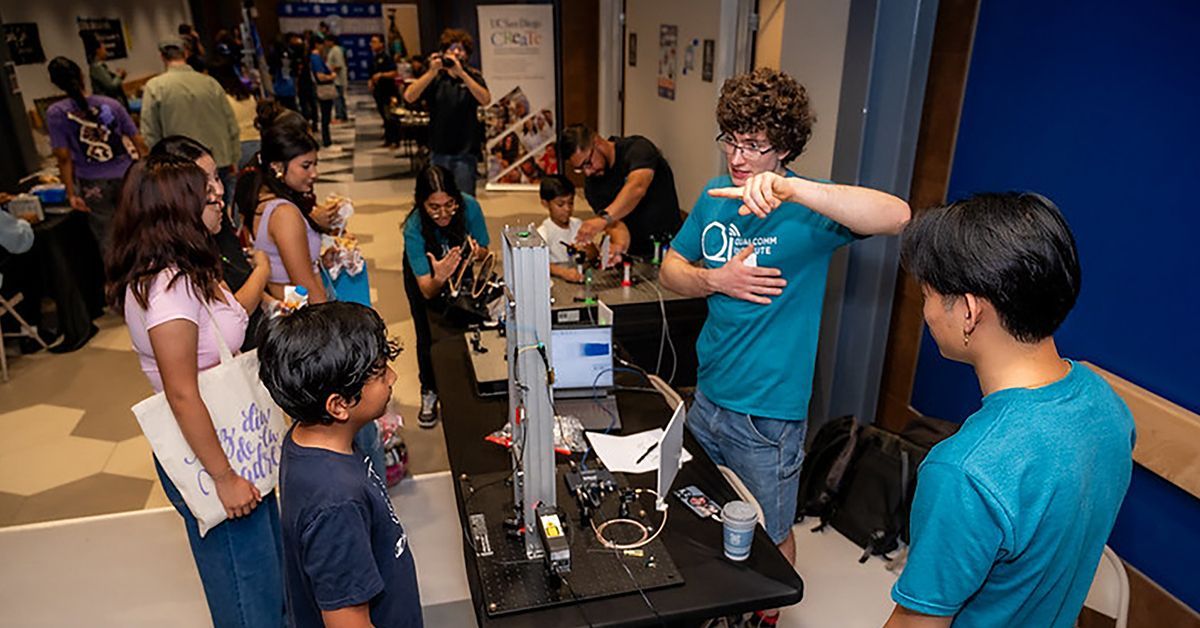 Science, Technology and Mexican Mother’s Day Unite in Festive Imperial Valley STEM Day
Science, Technology and Mexican Mother’s Day Unite in Festive Imperial Valley STEM Day
CREATE (the Center for Research on Education, Assessment & Teaching Excellence), housed in the School of Social Sciences, organized this STEM fair on the 75th anniversary of the National Science Foundation. The story features Ernesto Zepeda, assistant director of CREATE’s Early Academic Outreach Program, and Victor Minces of Cognitive Science.
Trump Wants To End Birthright Citizenship. Where Do Other Countries Stand?
In this republished BBC article, John Skrentny of Sociology shares expertise on the origins of birthright citizenship.
California’s Economy Ranks 4th in the World
Marc Muendler, chair of the Department of Economics, told Voice of San Diego that inflation and exchange rates can skew global GDP rankings. “Higher prices do not mean that a country is doing better,” he said.
Can Our Pets Tell Us What They Are Thinking?
In this Interspecies Internet lecture, Federico Rossano of Cognitive Science offers an in-depth look at his groundbreaking research on animal communication.
Interested in Finding Your Next (Elevated) Beach Read?
This UC San Diego Magazine story features the latest books by Erik Gartzke of Political Science, Neil Gong of Sociology, Agustina S. Paglayan of Political Science and GPS, and Terrence J. Sejnowski of Salk and Biological Sciences, who also serves as an adjunct professor in Cognitive Science.
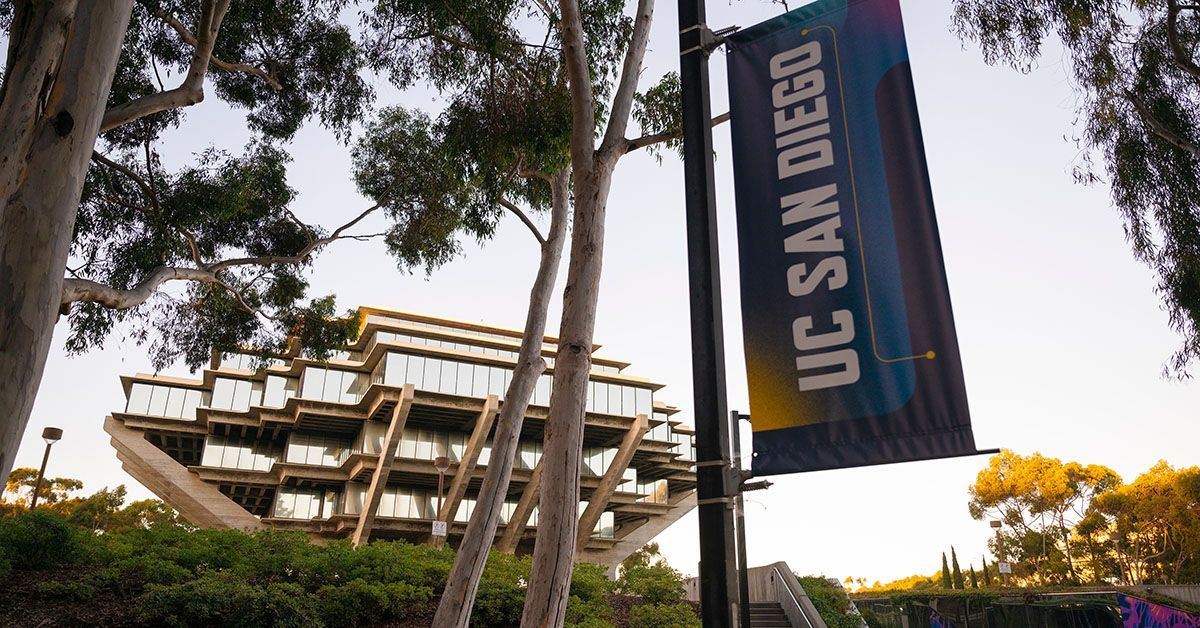 UC San Diego Graduate Programs Recognized Among the Nation’s Best by U.S. News & World Report
UC San Diego Graduate Programs Recognized Among the Nation’s Best by U.S. News & World Report
Three School of Social Sciences departments were newly ranked and received high marks in this year’s U.S. News Best Graduate Schools peer-assessment-only rankings. The Department of Political Science was ranked 8th, and the Departments of Economics and Psychology were both ranked 14th in their disciplines. The school also holds impressive standings for specialties last ranked in previous years, such as behavioral neuroscience (1), international politics (5) and econometrics (7).
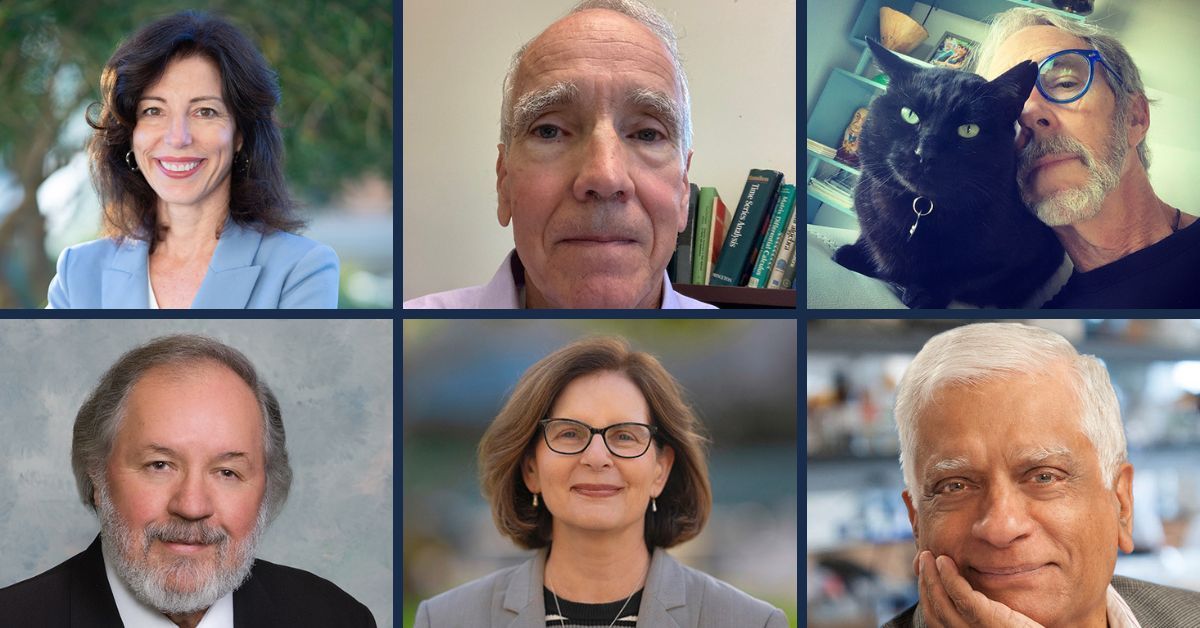 Six UC San Diego Faculty Members Join Prestigious American Academy of Arts and Sciences
Six UC San Diego Faculty Members Join Prestigious American Academy of Arts and Sciences
Three out of six UC San Diego faculty members elected in 2025 to the American Academy of Arts and Sciences are from the School of Social Sciences: Social Sciences Dean Carol Padden of Communication, Associate Dean of Social Sciences Amanda Datnow of Education Studies, and James Hamilton of Economics. In the story, Chancellor Pradeep K. Khosla says that these honors are “a testament to the pathbreaking work being done throughout our university.” The induction ceremony will take place in Cambridge, Mass. in October.
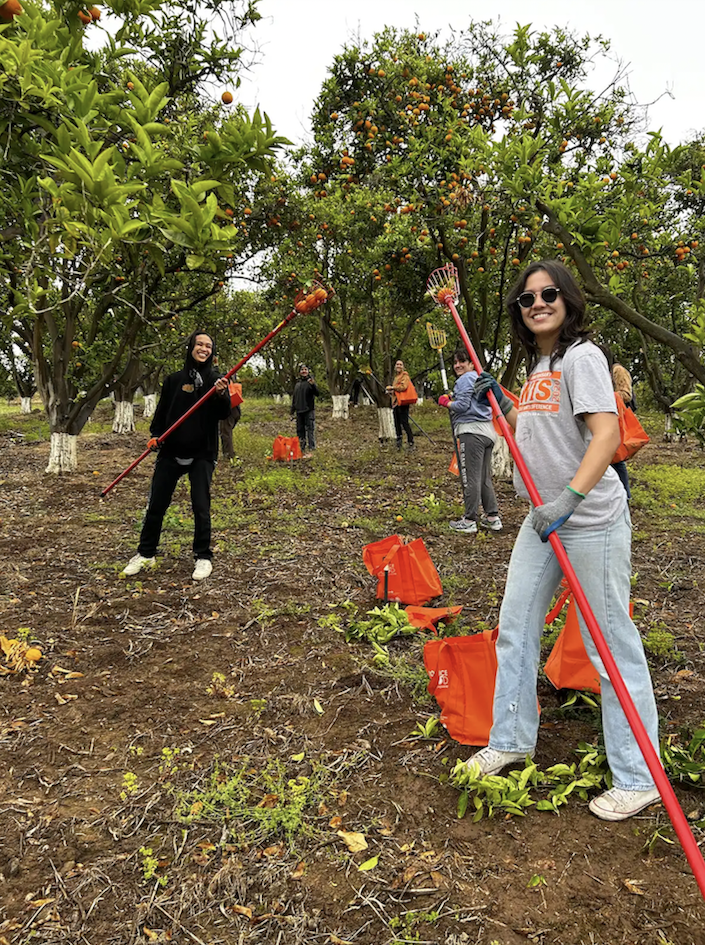 Food for Thought: The Ingredients for Social Change
Food for Thought: The Ingredients for Social Change
Amy Lerner of Urban Studies and Planning, Jana Fortier of Anthropology, and Christine Crofts of Sociology are offering a taste of the social importance of food in their courses. From volunteering at a community garden to cooking South Asian cuisine, students gain a hands-on understanding of what the social sciences bring to food studies. “Social sciences help us understand how food intersects with our social structures, cultural practices, economic systems, and political landscapes,” Fortier says.
Education Alum Wins District Teacher of the Year for Second Time
Education Studies graduate alum Miguel Marin ’08 has been named the 2025 District Teacher of the Year for Sweetwater Union High School District. Marin also received the award in 2017.
Hoston Article Wins Best of 2024
The Journal of the History of Ideas honored Germaine A. Hoston of Political Science for her article “Neo-Confucianism and the Development of German Idealism,” which was selected as the best article published in the journal in 2024.
Cognitive Science Ph.D. Candidate Receives NSF Graduate Research Fellowship
Cognitive Science doctoral student Irene Hou, mentored by Philip Guo of Cognitive Science, has won an NSF Graduate Research Fellowship for her proposal, “Human-Centered AI Tools for Building Social Connectivity in Computing Education.” This year’s cohort was extremely selective, with a 6% acceptance rate and only 1,000 students awarded across the country.
 UC San Diego Professor Shares Broader History of Black Americans Along the Pacific Coast in Public Exhibition
UC San Diego Professor Shares Broader History of Black Americans Along the Pacific Coast in Public Exhibition
Caroline Collins of Urban Studies and Planning, also a Communication doctoral alum, spoke to the San Diego Union-Tribune about “Take Me to the Water: Histories of the Black Pacific,” her new exhibition on display at San Diego Central Library. Explaining her motivations behind the project, Collins said: “I felt that you couldn’t really talk about the significance of the Pacific as this important site, commercially and economically and socially, and all it’s done and continues to do in the development of the U.S. (unless you) also understand how part and parcel Black folks were in that region.”
How Has Global Poverty Fallen
“In the 80s, about 2 billion people were poor by the standards we use, and now it's more like 700 million,” said Tom Vogl of Economics on an episode of VoxDevTalks. Vogl conducted research with Economics colleagues Paul Niehaus and doctoral student Vincent Armentano to explain these changing demographics. “No one path out of poverty predominates. There are numerous intricate paths out of poverty.”
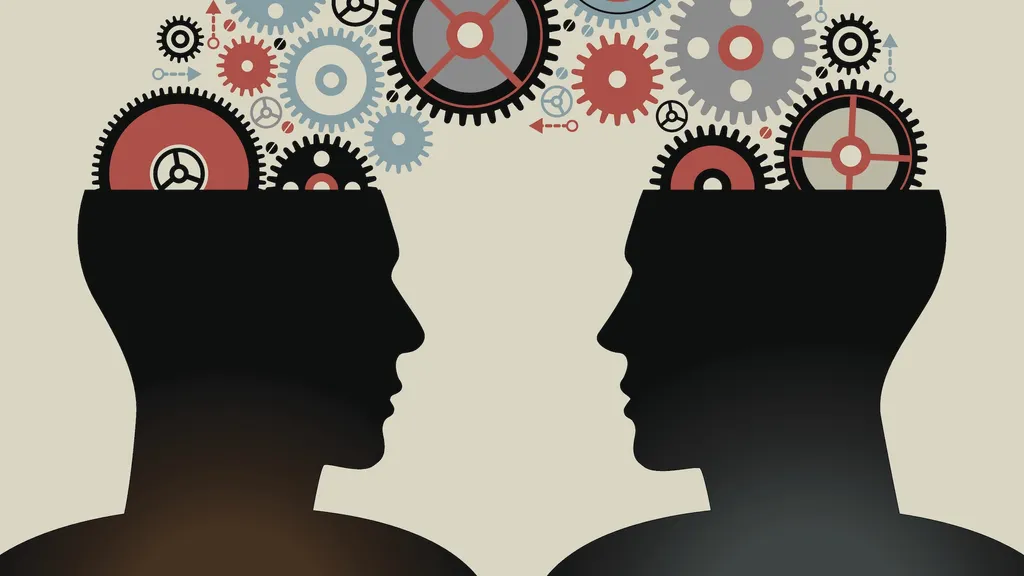 An AI Model Has Officially Passed the Turing Test
An AI Model Has Officially Passed the Turing Test
In a preprint study awaiting peer review, postdoc Cameron Jones and Ben Bergen of Cognitive Science find that “in a three-party version of a Turing test, in which participants chat with a human and an AI at the same time and then evaluate which is which, OpenAI's GPT-4.5 model was deemed to be the human 73 percent of the time when it was instructed to adopt a persona,” reports Futurism. “The results provide more evidence that LLMs could substitute for people in short interactions without anyone being able to tell," Jones wrote on social media. "This could potentially lead to automation of jobs, improved social engineering attacks, and more general societal disruption." The study was also featured in Popular Mechanics, Live Science, The Conversation, The Independent, Psychology Today, Interesting Engineering, Newsweek, and other outlets.
Lilly Irani Presents at CHI Conference on Human Factors in Computing Systems
Lilly Irani of Communication and the Labor Center, housed in the Department of Urban Studies and Planning, presented research about how to prioritize worker needs in an age of pervasive automation at CHI 2025. The conference was held in Yokohama, Japan.
Hard Work Feels Worth It, but Only After It’s Done – New Research on How People Value Effort
“When deciding if something is worth the effort, whether you’ve already exerted yourself or face the prospect of work changes your calculus,” Piotr Winkielman and postdoc Przemysław Marcowski of Psychology wrote for The Conversation. “For many people, there’s a sweet spot – a little effort might make something more valuable, but push too far and the value drops.” The story was picked up by Yahoo and other outlets.
RFK Jr.’s 18th-Century Idea About Mental Health
Andrew Scull and Neil Gong of Sociology spoke to The Atlantic about the historical context of RFK Jr.’s proposed wellness farms. “Mental hospitals started out in the 19th century with very utopian expectations around them and their ability to cure,” Scull said. However, Gong added that these institutions “rapidly declined into warehouses where lots of unpleasant things happen to the patients, and where patients tended to get lost.”
 Career Pathways Program Extends a Guiding Hand to High School Students
Career Pathways Program Extends a Guiding Hand to High School Students
The Career Pathways Program – part of CREATE (Center for Research on Education, Assessment & Teaching Excellence) in the School of Social Sciences, led through the EAOP (Early Academic Outreach Program) – empowers high school students in San Diego and Imperial counties to learn about potential college and career options. The program is directed by Economics and Latin American Studies alum Francisco Salinas ’17 and supported by four student advisors, including Cognitive Science undergraduate student Zihan Xu. “Our goal here at CPP is to provide students the knowledge they need to make the best decision for themselves, whether it's going to community college, CSU or UC,” Salinas said.
Demand for Mental Health Care, Exits to Permanent Housing Increasing at Father Joe’s Villages
KPBS reported on research led by Homelessness Hub Managing Director Jennifer Nations of Urban Studies and Planning: “Only about 1 in 4 people who stayed in San Diego County shelters between 2018 and 2023 moved straight into permanent housing. Service providers who pair housing with health and social care are the most successful at helping people leave homelessness for good.”
Tariffs Cannot Fund the Government: Evidence from Tariff Laffer Curves
“Hiking import tariffs is not a viable solution to fund today’s public finances,” writes Marc Muendler, chair of the Department of Economics and founding director of the Globalization and Prosperity Lab, in this GP Lab “cBrief,” or computation-based evaluation of global policies, reprinted by VoxEU. “There is no case in the figure where import tariff hikes could raise an extra $600 billion in government revenues.” Separately, Muendler contributed his expertise on tariffs to ABC10 News x2, LiveNOW from FOX and CNA.
Are TikTok’s “Talking” Dogs Legit – or Just a Clever Trick? Science Explains
Fig. 1, the University of California video series that highlights new discoveries, featured Federico Rossano of Cognitive Science and the Comparative Cognition Lab for a deep dive into his research on dogs using communication buttons. Rossano’s research also received coverage by Newsweek and The World, hosted by UC San Diego Journalist in Residence Marco Werman.
1980 Colombia Hostage Crisis Recalled on 45th Anniversary
Alex Fattal of Communication appeared on “The World” to discuss the legacy of the 1980 Colombian hostage crisis: “It’s an elevation of spectacle to the very forefront of politics.” The World is hosted by Marco Werman, UC San Diego’s first Journalist in Residence in the Department of Communication.
California College Professors Have Mixed Views on AI in the Classroom
An EdSource feature included the views of Celeste Pilegard of Psychology: “For me and a lot of professors, there’s fear,” Pilegard said. “We’re holding onto the last vestiges, hoping this isn’t going to become the thing everyone is using. Maybe there are some things that aren’t important for students to be doing themselves. But when the thing you’re offloading onto the computer is building the connections that help you build expertise, you’re really missing an opportunity to be learning deeply.”
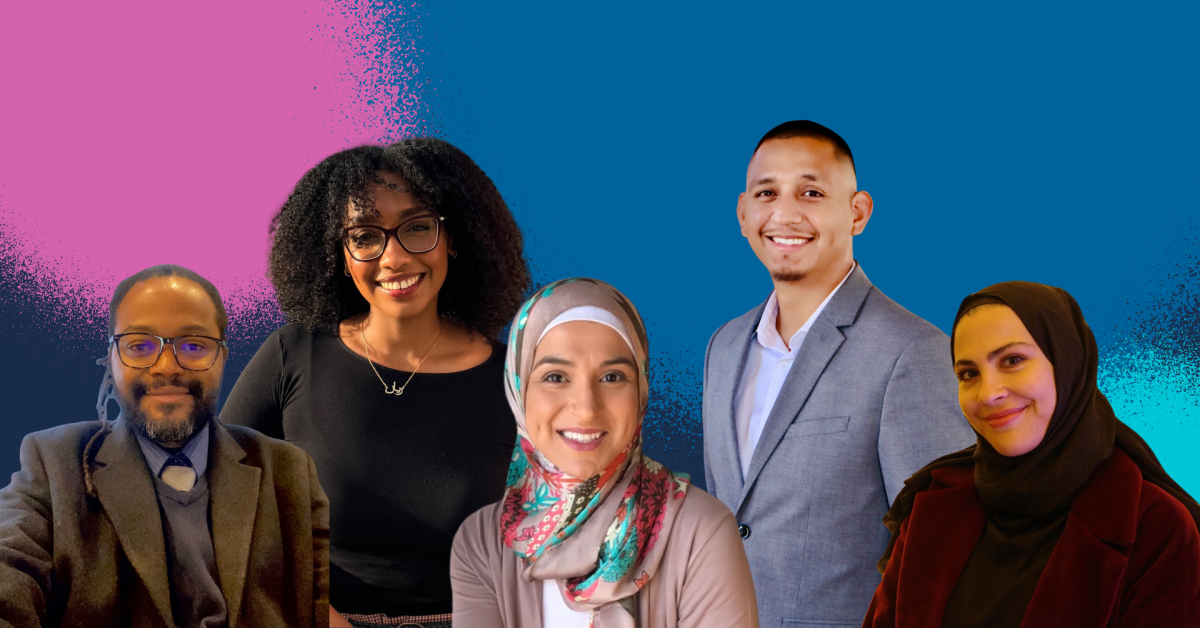 Leaders and Advocates in Inclusive Academic Excellence
Leaders and Advocates in Inclusive Academic Excellence
UC San Diego Today profiled doctoral students Marwa Abdalla of Communication, a recipient of the Jacobs Fellowship from the School of Social Sciences, and Ivan Valdovinos Gutierrez of Education Studies. Abdalla and Gutierrez are two of five UC San Diego graduate students chosen for this year’s cohort of the Bouchet Graduate Honor Society, which recognizes outstanding academic achievement and personal excellence.
How to Make Indian Governance More Effective
Karthik Muralidharan of Economics appeared on the podcast Sushasan to discuss findings from his book, “Accelerating India’s Development.” Separately, Muralidharan met with Bill Gates to discuss how Indian innovations can help boost global development.
The Surprising Health Benefits of Swearing
“Some people believe that profanity can break social taboos in a generally non-harmful way, [which] can create an informal environment in which people feel like insiders together,” Ben Bergen of Cognitive Science told Time Magazine. However, Bergen advised that knowing one’s audience and “observing how others use language” is important before deciding to swear. “It’s not just whether people are using profanity or not – it’s how they’re using it and what specific words or kinds of words they’re using.”
Speech and Debate Shines at Last Tournament of the Season
Congratulations to the Speech and Debate Team, housed in the Department of Communication, and head coach Robert Campbell on their success at the IPDA National Tournament! The team won the 2nd place national award for the 2024-25 season.
Is Gavin Newsom Changing His Tune with the Oil Industry?
“He has extended a private olive branch to an industry that he’s really been publicly hammering over the last two years…because he recognizes that regardless of the underlying causes for the closures of these refineries, as a governor who has taken such a hard line against oil and gas companies, he may get the blame,” Thad Kousser of Political Science told the San Diego Union-Tribune. “While it’s tempting to read any moderate or pragmatic position that he takes now as a turn away from his past, in fact, that’s who he’s been his whole career.” Separately, Kousser spoke to the San Diego Union-Tribune on El Cajon council weighing in on federal and state issues and the Bay Area News Group on a new bill that aims to make school funding more equitable.
Californians See Undocumented Immigrants as Essential to Economy, Poll Finds
“Instead of mass deportations, Californians want to further integrate immigrants, regardless of their legal status, into the fabric of our state,” Tom Wong of Political Science and founding director of the U.S. Immigration Policy Center told the Los Angeles Times.
Long Beach Mayor Rex Richardson Welcomes the Mayors’ Institute on City Design for Its 80th National Session
John Arroyo of Urban Studies and Planning served as a resource team member at the annual Mayors’ Institute on City Design meeting, which convened mayors from across the country to discuss pressing design and development issues in their cities. “It was an honor to spend three days with mayors from across the U.S. in Long Beach. As a resource team member, I valued the mayors’ intent and passion, engagement with their communities, and their infectious fervor for the future for each of their cities,” Arroyo said.
New Research Shows That Propaganda Is on the Rise in China
A recent paper co-authored by Molly Roberts of Political Science analyzes the rising prevalence of government-authored propaganda in Chinese newspapers. “In China, scripted propaganda is a daily phenomenon – on 90% of days from 2012 to 2022, the vast majority of party newspapers include at least some scripted propaganda,” the authors wrote.
Could the U.S. Become a Manufacturing Hub Again?
“Yes, but the president’s policies will set us back,” James Hamilton of Economics told the San Diego Union-Tribune’s Econometer panel. “The U.S. manufactures over 10% of the world’s cars and computer chips and 20% of world pharmaceuticals…If we want to make America great again, we need to build on the foundations of our success.” Hamilton also shared expertise on whether California drivers should be charged by the mile, if San Diego’s new hotel tax will help expand the convention center, and whether the trade war with China was necessary: “No one wins a trade war. Everybody will get hurt.”
The 40-Something Single Dad Shaping Liberal Media From His Laptop
Communication professor emeritus Daniel Hallin shared expertise with the Washington Post on how viral, fast-cut news clips are similar to legacy forms of journalism. Hallin compared social media accounts like Acyn Torabi’s to “old-style TV news, where you would hear someone speak a whole paragraph, or hear a conversation with several turns.”
Historic Footprints at Mingei International Museum
Ross Frank of Ethnic Studies developed and served as a guest curator for “Historic Footprints,” a new exhibition on display at the Mingei International Museum until August. Students from Frank’s “Representing Native America” course helped create the exhibition, which features Native American ledger drawings from Fort Marion. It received coverage in the San Diego Union-Tribune’s 2025 art exhibitions preview. 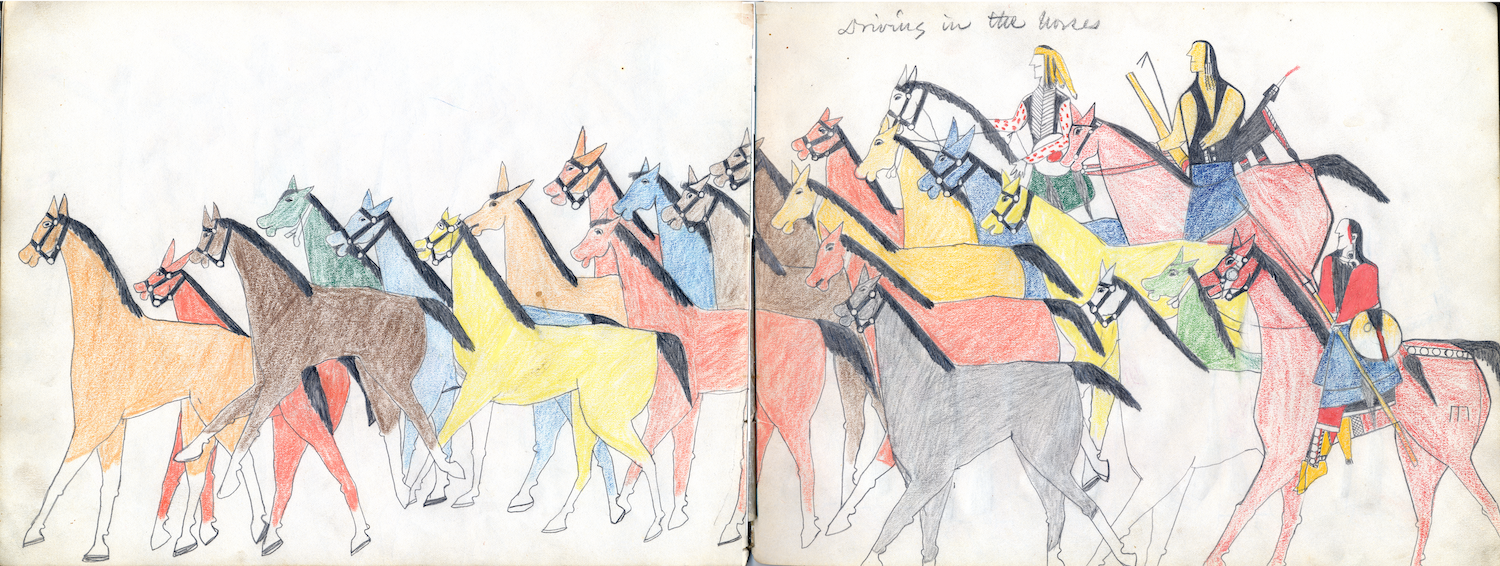
Communicating with Compassion: A Student’s Perspective
Anthropology undergraduate student Madeline Balzarini, who aspires to work in environmental conservation, spoke to UC San Diego Today about the importance of non-violent communication, especially when addressing climate change.
UC San Diego Celebrates 60 Years of Its Unique College System
Did you know six of the eight UC San Diego college provosts are Social Sciences faculty? UC San Diego Today highlighted the impactful work done by provosts Wayne Yang of Ethnic Studies at Muir College, Leslie Carver of Psychology at Marshall, Marisa Abrajano of Political Science at Warren, Ivan Evans of Sociology at Roosevelt, Kate Antonovics of Economics at Seventh, and Angela Booker of Communication at Eighth.
Top Women Making a Difference in the World of Academe
Congratulations to Amanda Datnow of Education Studies – associate dean of the School of Social Sciences – on being chosen by Diverse: Issues in Higher Education as one of 40 women creating a positive impact in higher education.
 Imperfect Sounds: Implants Can Help Deaf Kids Hear – but Many Still Struggle With Spoken Language
Imperfect Sounds: Implants Can Help Deaf Kids Hear – but Many Still Struggle With Spoken Language
Social Sciences Dean Carol Padden of Communication and Rachel Mayberry of Linguistics told Science magazine that waiting to introduce sign language to children with early language processing and hearing difficulties can have negative effects on their language processing abilities. Padden added that late language learners "really don’t have the kind of comprehension that we take for granted."
Library of Congress Selects Zeinabu Davis’ "Compensation" for National Film Registry
"Compensation," the 2000 feature film debut by Zeinabu Davis of Communication, has been added to the Library of Congress National Film Registry. This prestigious honor is only awarded to 25 films each year and this year there were more than 6,700 nominations. The film is also having a nationwide theatrical release for the first time. You can find "Compensation" showtimes or watch its rejuvenated trailer. 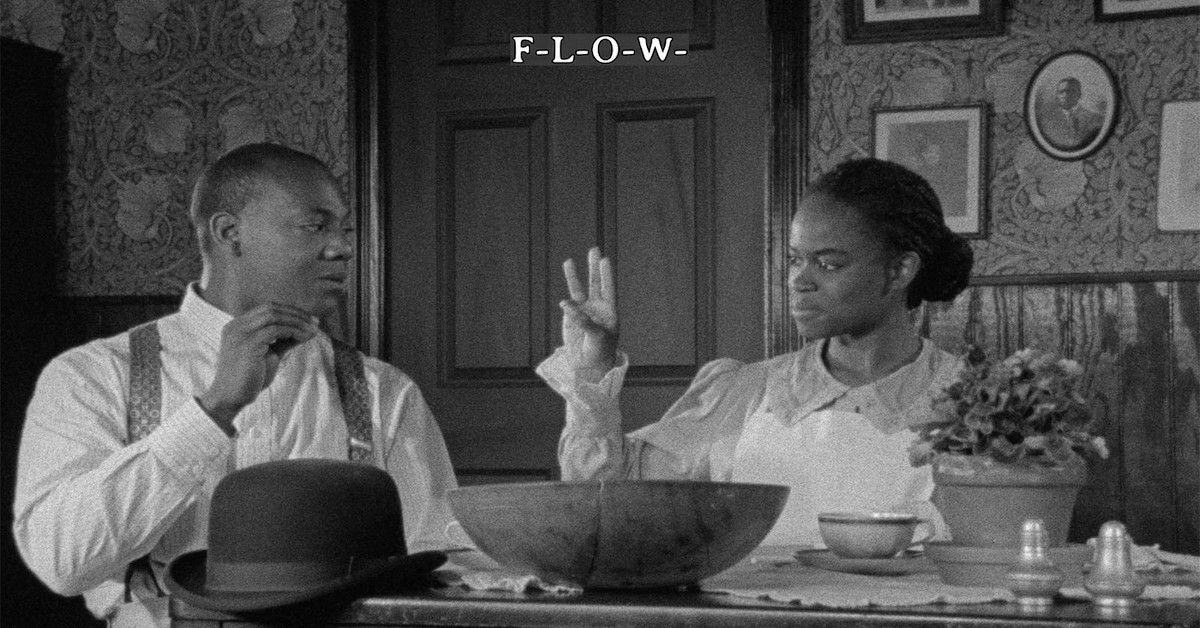
Meet Adam Syed: The Designer Who Supported Millions of Creators Through Innovation at Twitch
Cognitive Science alum Adam Syed was profiled in a USA Today contributor content piece for his impressive work as a product designer at Twitch, a live-streaming social media platform. Syed now works for LinkedIn, incorporating AI to help users find and assess job opportunities more efficiently.
Resilience Summit Highlights Local Leadership on Global Climate Crisis
Fonna Forman of Political Science co-chaired a recent Climate-Resilient California and Californians (CRC2) summit. The event brought together government officials, religious leaders, researchers, and students to discuss local responses to climate-driven disasters. "In local communities, we are likelier to cut through the divisions that are presently undermining robust collective action at broader scales," said Forman, founding director of the Center on Global Justice. "We need to work together, all of us, to protect California’s neighborhoods and communities."
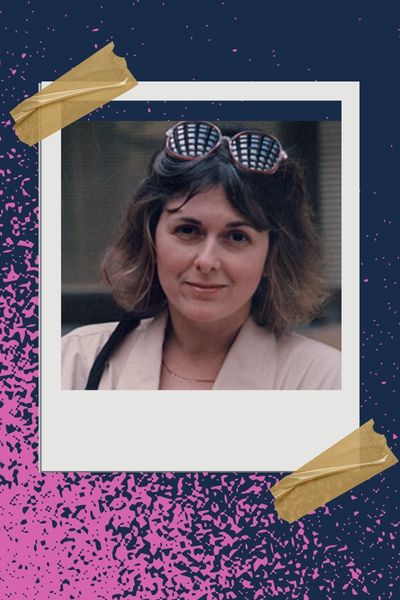 8 Trailblazing Women Educators Who Paved the Way at UC San Diego
8 Trailblazing Women Educators Who Paved the Way at UC San Diego
In honor of Women’s History Month, UC San Diego Today highlighted the late Elizabeth Bates who played a central role in the establishment of the university’s Department of Cognitive Science in 1986 – the first of its kind in the United States. Bates, who served as director of the Center for Research in Language at UC San Diego and was also a member of the Psychology faculty as well as Cognitive Science, helped shape the modern understanding of how language develops in the brain.
Most Stays at San Diego County Homeless Shelters Were Brief. Some Persisted for a Year or More
A front-page story in the San Diego Union-Tribune featured research by the Homelessness Hub in Urban Studies and Planning. The study, "Passing Through and Staying Put," recommends increasing access to supportive services and programs that prevent people from becoming homeless in the first place: "Expanding shelter capacity and other temporary accommodations may reduce the numbers of people living unsheltered on the streets but will not sufficiently change the system’s capacity to help people permanently exit homelessness."
Russia-Ukraine War
Branislav Slantchev of Political Science shared his expertise with BBC News on the Trump-Putin call, The Hill on Trump’s aid freeze to Ukraine, and Raw Story on Trump shutting down Voice of America.
Spotlighting Leaders in Graduate and Postdoctoral Education
UC San Diego Today profiled three Social Sciences students and faculty who received Graduate Education and Postdoctoral Affairs (GEPA) Awards for their work advancing equity and diversity on campus. Congratulations to Cognitive Science and Linguistics Ph.D. student Shai Lynne Nielson and to Christina Schneider of Political Science and Mirle Rabinowitz-Bussell of Urban Studies and Planning.
UC San Diego Innovators at SXSW 2025
Patty Ahn of Communication was one of the university innovators whose work was featured in the South by Southwest (SXSW) conference and festivals: A documentary feature "Forever We are Young," co-directed by Ahn, had its world premiere at the 2025 edition of SXSW. The film "dives into the passionate fandom that catapulted the K-pop band BTS into a global household name" and "captures the powerful spirit of activism and collectivity that make BTS fans a symbol of hope and unity in our ever-fractured world."
Is It Too Early To Tell What Trump’s Policies Mean for the Economy?
James Hamilton of Economics said as part of the San Diego Union-Tribune’s Econometer panel that although it’s too soon to tell how Trump’s policies will affect the economy, he is concerned about the fall in consumer sentiment: "The Trump administration should take this as a warning flag to be much more cautious about the hornet’s nest of tariffs and retaliations that it has stirred up." Hamilton also contributed to the expert panels on whether San Diego should mandate a $25 minimum wage for tourism workers and whether it’s good for the city’s population growth to be fueled largely by immigration.
Gavin Newsom Is Welcoming Prominent Conservatives on His New Podcast
"While there are clear risks [to the California governor’s approach], he is trying to align his national reputation … in a slightly unpredictable middle," Thad Kousser of Political Science told Fortune. Kousser added that politicians talking with members of the opposite side is "so rarely a part of public discourse it seems like either bravery or lunacy." Separately, Kousser contributed expertise to the San Francisco Chronicle on whether Newsom will support increasing health privacy protections in California.
 Hundreds Gather at UC San Diego for the Stand Up for Science Rally
Hundreds Gather at UC San Diego for the Stand Up for Science Rally
Cognitive Science postdoc Christian Cazares told KPBS that federal funding cuts to universities will also hurt local economies. "That means people spending money at restaurants and local businesses. All of that will be gone," Cazares said.
UC San Diego Speech and Debate Wins Two National Titles
The Speech and Debate Team, housed in the Department of Communication and coached by Robert Campbell, continues to rack up wins: finishing fourth in intercollegiate debate and eighth overall at the 2025 Pi Kappa Delta National Tournament.
How Trump’s Presidency Could Change Where Babies Are Born
The Times (UK) highlighted research by Gordon Dahl of Economics on the "Trump baby bump" among Republicans after the 2016 election.
Scholars Accused of Sexual Misconduct Are Cited Less After Allegations Come to Light
New research from the Rady School of Management co-authored by Craig McKenzie of Psychology reveals that scholars accused of sexual misconduct saw a significant decline in citations within three years of public allegations. The study, published in PLOS One, also finds there is no significant citation decrease for scholars accused of scientific misconduct in the same timeframe.
Covid’s Long Shadow in California: Chronic Absences, Student Depression and the Limits of Money
EdSource cited research by Julian Betts of Economics, revealing that two years of increased federal Covid spending had a positive impact on low-income students in 2021-22, "equivalent to a gain in math and English language arts of about 10 days of learning." However, schools with high percentages of low-income students still lost a quarter year of learning during this period.
Can Animals Understand Human Language?
Live Science featured Federico Rossano of Cognitive Science and his research using button boards to understand dogs’ communication abilities. Rossano is currently investigating "whether dogs use buttons to refer to people or objects that aren't currently present, and whether they combine buttons to refer to things they don't know the names of." Rossano’s work was also featured in NPR podcast "Dog Talk."
Psychological Insights for Building the Climate Movement
Adam Aron of Psychology discussed the emotional challenges of addressing climate change on a podcast called "Bridging the Carbon Gap." Aron also published, along with several UC San Diego colleagues, a case study in the journal Frontiers in Education on "The wins of the grassroots climate movement in the University of California."
Gen.G Foundation Awards Scholarships to 10 Students in Eight States
Kudos to Cognitive Science major Eric Williamson on being selected for a $5,000 Gen.G Foundation scholarship by global esports and gaming organization Gen.G. Williamson, who gains access to career and mentorship programming, as well as the network of Gen.G Foundation alumni, said: "Receiving this scholarship feels like a vote of confidence in my journey. It not only lightens the financial load but inspires me to dream bigger, work harder, and stay focused on achieving my goals in school and beyond."
The Self-Deporters
The New York Times writes about the prospect of “self-deportation” by unauthorized migrants, reporting that most are currently staying put. But, say experts like Wayne Cornelius of Political Science, bleak job prospects are what’s most likely to impel undocumented immigrants to leave.
U.S. Tariffs, Expert's View
Marc Muendler of Economics, founding director of the Globalization and Prosperity Lab at UC San Diego, has been speaking with a number of local, national and international outlets, including Nikkei (linked here) and CBS, about the various effects of tariffs and trade wars.
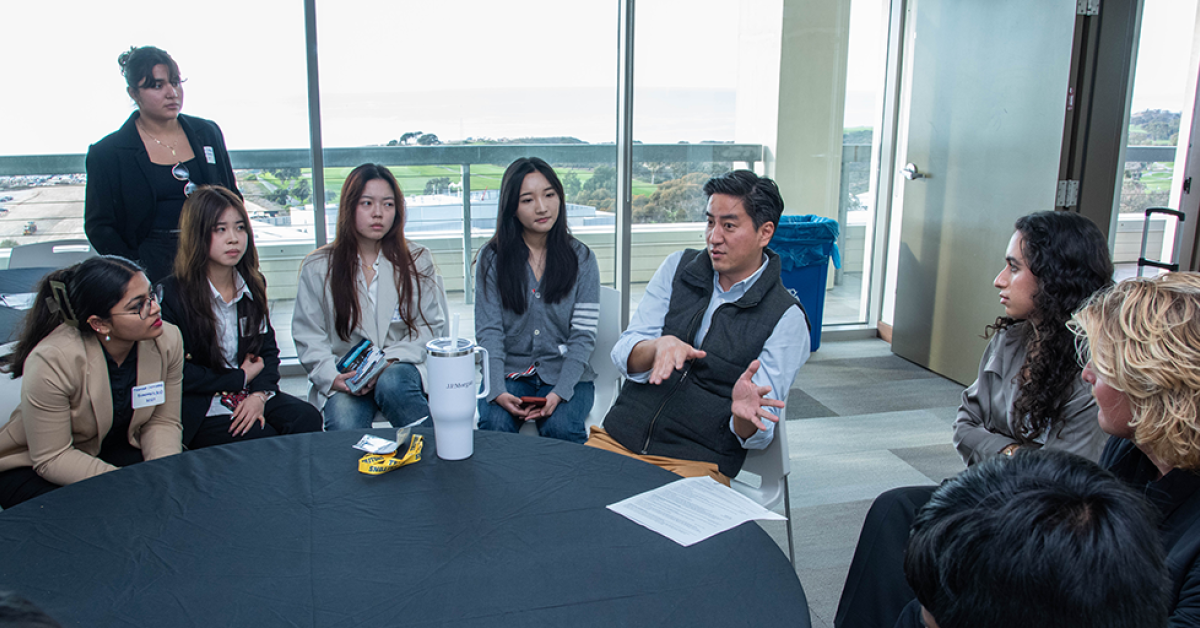 Alumni Advice to Students Is on the Money
Alumni Advice to Students Is on the Money
More than 200 undergraduate students attended the "Future of Finance" career conference hosted by the Department of Economics industry engagement program. The two-day event featured alumni and other professionals who have made their marks as entrepreneurs, leaders and innovators in various industries. "I envisioned an event that would help students explore career possibilities in finance, offer tangible advice on what to do as a student to prepare for a future career and feel a greater sense of connection to UC San Diego alumni and the business community," said conference planner Karen Doescher, who serves as Economics' director of industry relations and student professional development. ICYMI: you can read more about how Doescher and colleagues in Cognitive Science and Urban Studies and Planning are helping Social Sciences students launch their post-college careers.
Buying a Home in California? Here’s How Seriously You Should Take Zillow’s Climate Risk Data
“The real world is much more complicated than one through 10,” Judson Boomhower of Economics told the San Francisco Chronicle. “You have to take all this with a grain of salt … A single number for every house probably does convey some precision that isn’t really there in reality.” Boomhower also contributed expertise to CNN Business on whether people buying burned lots in L.A. should worry about future fires and to Business Insider on how homeowners can protect their houses from wildfires.
 ‘Compensation’ Review: Still Rebellious
‘Compensation’ Review: Still Rebellious
“Compensation,” the renowned 1999 film by Zeinabu Davis of Communication has been chosen as a New York Times’ Critic’s Pick and is also celebrated by The New Yorker as it embarks on its first-ever theatrical release. “The arrival of this restored beauty,” The Times writes, “proves that Davis knows how to rebel in her own distinctive way.”
The Dark History Behind Public Education
Agustina Paglayan of Political Science and the School of Global Policy and Strategy was featured in The Atlantic’s “Good on Paper” podcast in a discussion of her new book, “Raised to Obey: The Rise and Spread of Mass Education,” which argues that the “expansion of primary education in the West was driven not by democratic ideals, but by the state’s desire to control citizens.”
 India Has Undermined a Popular Myth About Development
India Has Undermined a Popular Myth About Development
The Economist cited research by Paul Niehaus, Tom Vogl and doctoral student Vincent Armentano of Economics on how extreme poverty declined in India, China, Indonesia, Mexico and South Africa from 1981 to 2019. One key finding is that people can surpass poverty while still working in agriculture, which is especially significant in India, where more than 40% of workers are employed in agriculture.
Meet the 2025 Illustrious Alumni Honorees
Four out of 10 of this year’s Illustrious Alumni Award recipients are School of Social Sciences alumni! Congratulations to Ellen Chen ’95 of Economics, Shelley S. O’Connor ’83 of Psychology, Jamie Montgomery ’81 of Political Science, and Leo Spiegel ’83 of Economics, who will be celebrated at events in New York and Los Angeles. The award is one of UC San Diego’s highest honors and recognizes distinguished alumni who are “creating a legacy of excellence and innovation.”
 UC San Diego Alumnus Leverages Technology to Bring Educational Resources to Those Who Need It Most
UC San Diego Alumnus Leverages Technology to Bring Educational Resources to Those Who Need It Most
Cognitive Science doctoral alum Jamie Alexandre ’14 created Learning Equality, an education nonprofit that brings online content to those without Internet access, while he was still a student at UC San Diego. More than a dozen years after its launch, Learning Equality’s offline-first approach still resonates.“Today, the connectivity gap has narrowed, but it still exists,” Alexandre told UC San Diego Today. “There are still 2.6 billion people without connectivity – almost a third of the world.” Housed in Qualcomm Institute’s Innovation Space, the team is also now thinking about how to support offline AI education.
Do Animals Have Language?
The Economist’s “Babbage” podcast featured Federico Rossano of Cognitive Science in its two-part series on animal communication. The second episode, “Could AI translate animal communication,” is also available now.
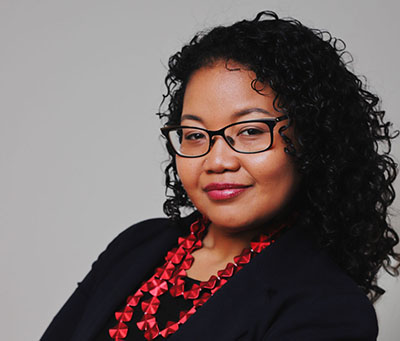
Satomi Rash-Zeigler Receives Civil Rights and Justice Award from City of San Diego
Congratulations to Satomi Rash-Zeigler, executive director of the UC San Diego Labor Center, housed in Urban Studies and Planning, on receiving a Bayard Rustin Award from Mayor Todd Gloria and the City of San Diego Human Relations Commission. The annual award recognizes individuals who have “positively impacted their communities through their advocacy and dedication to civil rights and justice.” Rash-Zeigler, who has more than 20 years of experience working in the labor movement, said in a City News story: “It was a privilege to celebrate alongside fellow advocates and leaders in our community, all dedicated to the values that Bayard Rustin championed.” ICYMI: Here’s last year’s story about Rash-Zeigler’s appointment to the Labor Center.
Inclusive Excellence Awards
Congratulations to Victor Ferreira of Psychology and Leslie Vallejo Avila, a Political Science undergraduate student and the 2024-25 Associated Students president, on receiving Inclusive Excellence Awards, which recognize campus leaders who advance diversity, equity and inclusion.
Trump Wants to End Birthright Citizenship. Where Do Other Countries Stand?
When did birthright citizenship, the law in about 30 countries around the world including the United States, first appear? John Skrentny of Sociology told BBC that most of these 30 countries are former colonies that adopted the policy when they became nation-states. "They had to be strategic about whom to include and whom to exclude, and how to make the nation-state governable,” Skrentny explained. “For some, it encouraged immigration from Europe; for others, it ensured that indigenous populations and former slaves, and their children, would be included as full members, and not left stateless. It was a particular strategy for a particular time, and that time may have passed."
Trump’s Immigration Plans Follow a Familiar Playbook: Exclusion, Incarceration and Mass Deportation
In this Capital & Main piece, republished by Fast Company, Tom Wong of Political Science predicts that mass deportations could lead to labor shortages, increased food prices and construction delays. “It’s going to take a lot of pain before people realize how damaging mass deportation efforts are,” says Wong, founding director of the U.S. Immigration Policy Center at UC San Diego.

Google Drops Pledge Not to Use AI for Weapons or Surveillance
“This is an opportunity to remind ourselves of the emptiness of Google’s promises,” Lilly Irani of Communication and a former Google employee told the Washington Post. Although Google’s updated policy says AI will be used with international law and human rights in mind, “we’ve seen those limits routinely broken by the U.S. state,” said Irani.
The Erasing of American Science
An Atlantic magazine story on the “battle over how research can and will be done in the United States” quoted Keolu Fox of Anthropology saying he’d leave the country if the administration’s decisions end up directly impacting scientific progress.
Deepti Chatti Receives Junior Scholar Award
Congratulations to Deepti Chatti of Urban Studies and Planning and Critical Gender Studies on receiving the Bonnie J. McCay Junior Scholar Award from the Anthropology & Environment Society section of the American Anthropological Association. This award honors “exemplary scholarship” from authors who have received a Ph.D. in the past five years. Chatti was selected for her paper “Disrupting the Grid: Encountering Fire and Smoke through Energy Infrastructures.”
Democratic Governors Diverge on How to Handle Trump
“There will be governors who see the route to their party’s nomination in 2028 as being the chief critic of President Trump,” Thad Kousser of Political Science told The Hill, while others will take a “more loyal opposition, find-areas-for-common-ground” approach. Separately, Kousser contributed expertise to CBS8 about the new ban on federal funding to sanctuary cities and the 'Economic Blackout' movement.
UC San Diego Speech and Debate: Southern California Champions for Fifth Consecutive Year
Congratulations to the Speech and Debate Team, housed in the Department of Communication and coached by Robert Campbell, on their first place win at the Pacific Southwest Collegiate Forensics Association’s (PSCFA) Spring Championships Tournament! The team was undefeated this season, with a 7-0 Tournament Championship record. Check out the team website for more impressive achievements this season.
Should the U.S. Create a Sovereign Wealth Fund?
“The federal government doesn’t have any wealth to invest,” James Hamilton of Economics said in the San Diego Union-Tribune as part of its Econometer panel. “The U.S. Treasury currently owes the public almost $29 trillion dollars. To create a sovereign fund, the government would need to borrow even more.” Hamilton also contributed to the expert panels on San Diego's ADU bonus program, whether California should back off on 2026 zero-emission car mandates and the future of California's high-speed rail project.
 The Coming Democratic Baby Bust
The Coming Democratic Baby Bust
The Atlantic cited research by Gordon Dahl of Economics showing a “Trump baby bump” among Republicans after the 2016 election. Based on that work, Dahl predicted that a partisan birth gap could also persist over the next four years. “If you’re a Democrat and you really care about child care and family leave and climate change,” Dahl said, you might decide that “this is maybe not the right time to bring a kid into the world.”
‘I Was Crying Watching This’: Locals React to Heated Oval Office Exchange Between U.S. and Ukrainian Leaders
Branislav Slantchev of Political Science told ABC10 that the Trump administration had a “complex” strategy going into their meeting with Ukrainian President Zelenskyy, and may have had something to do with the administration's refocus on China. Slantchev said he believes the Trump administration, as well as others not a part of the administration, are trying to use a "Reverse Nixon" policy, meaning detaching Russia from China.
 An Insurance Crisis Was Already Brewing in L.A. Then the Fires Hit.
An Insurance Crisis Was Already Brewing in L.A. Then the Fires Hit.
Judson Boomhower of Economics spoke to the Washington Post about the Los Angeles fires and the tensions facing homeowners, insurance companies and regulators as climate disasters become more frequent. Boomhower also provided timely expertise to Brookings on how climate change is impacting home insurance, CNN on how the region could have minimized damage, MSNBC on how California can rebuild resilient structures, and other prominent outlets, including Marketplace and CalMatters x2.
In the Rush to Rebuild, One Topic Is Taboo: What Should Be Built Differently – or Not at All?
Bill Fulton of Urban Studies and Planning, former mayor of Ventura, contributed expertise to the Los Angeles Times on how L.A. should approach rebuilding after the fires. “The difficult part is making everybody whole, both financially and emotionally,” said Fulton.
The 2025 RHSU Edu-Scholar Public Influence Rankings Unveiled
Congratulations to Amanda Datnow and Mica Pollock of Education Studies on being selected as two of the “200 university-based scholars in the United States who did the most last year to shape educational practice and policy.”
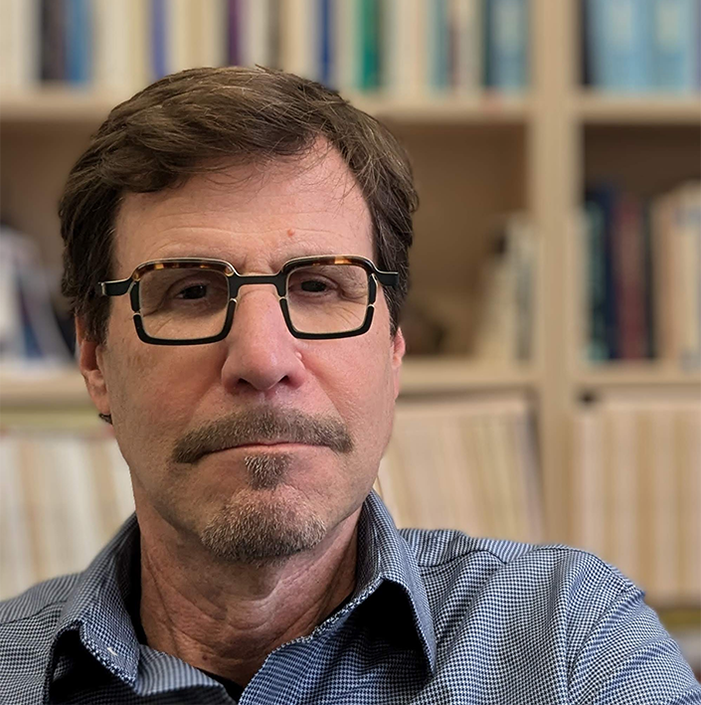 Grant Goodall Elected a Fellow of the Linguistic Society of America
Grant Goodall Elected a Fellow of the Linguistic Society of America
Linguistics Chair Eric Baković had this to say about Grant Goodall’s election to the Linguistic Society of America (LSA), the highest academic honor in linguistics: “In the four decades since he received his Ph.D. at UC San Diego, Grant has had a stellar record of scholarly contributions to the field, service to the LSA, outreach and communication with the language teaching and constructed language communities.” Goodall said: “I love what I do and I feel enormously privileged to count research, teaching, and supervising student researchers as part of my job. Receiving this recognition… is like icing on the cake. Other campus LSA fellows include emeritus professor David Perlmutter and School of Social Sciences Dean Carol Padden.
How Button Boards Are Changing Human-Canine Communication
PBS News Hour featured research by Federico Rossano of Cognitive Science on how dogs using soundboard buttons can comprehend specific words and produce contextually appropriate responses. Separately, Rossano was interviewed by Deutsche Welle, a story that was also translated into Spanish, Arabic and Dutch. Also, ICYMI, the New York Times Magazine cover story on Rossano’s research led to a segment on MSNBC’s “Morning Joe” program.
UCSD Trump Tariff Simulation: Wages Would Rise, but Prices Would Rise Higher
Marc Muendler, chair of the Department of Economics, shared expertise with ABC10 News about the potential impacts of Trump’s proposed tariffs.
Impact of AI on the Workforce
In this video (beginning at 41:00), UC San Diego Labor Center leadership – executive director Satomi Rash-Zeigler and faculty director Lilly Irani of Communication – present to the AI ad-hoc subcommittee of the County of San Diego. Their presentation proposes strategies the county can implement to “ensure AI adoption benefits workers and supports equitable labor practices.” The Labor Center is housed in the Department of Urban Studies and Planning.
Birthright Citizenship: Why the ‘Right of Soil’ Is So Big in the Americas
John Skrentny of Sociology shared expertise with CNN about the history of birthright citizenship. Separately, Skrentny also spoke to CBS News about H-1B visas. "The H-1B visa is like the Swiss Army knife of visas. It's used for a lot of different purposes,” he said. “If you hear people say that the H-1B visa is very important for attracting the best and brightest to the United States, they are correct. At the same time, the H-1B visa is used for cheap labor."
 Local Effects on Immigration, Education Under Trump 2.0
Local Effects on Immigration, Education Under Trump 2.0
Agustina Paglayan of Political Science and the School of Global Policy and Strategy appeared on KPBS Midday Edition to discuss how Trump’s proposed education policies will affect K-12 and higher education in San Diego. “The way that the federal government can influence curriculum is not by passing a curriculum, but by threatening to withhold funding from districts and states that don't comply,” Paglayan said. “People need to realize that whatever comes out of the current debates over the curriculum is something that will most likely stick around for many, many decades. It will shape the future of education in the U.S., and it will also shape how we think of common values.”
Announcing the Inaugural GEPA Award Recipients
The Graduate Education and Postdoctoral Affairs (GEPA) Awards recognize individuals who are making waves in equity and diversity for graduate education and postdoctoral training at UC San Diego. Out of this year’s six honorees, three are Social Sciences students and faculty: Cognitive Science and Linguistics Ph.D. student Shai Lynne Nielson, Christina Schneider of Political Science, and Mirle Rabinowitz-Bussell of Urban Studies and Planning.
Mexico Builds Temporary Shelters to Prepare for Mass Deportations From US
Wayne Cornelius of Political Science told Reuters that Mexican towns and villages that rely on remittances from U.S. workers could face "serious economic disruptions” as a result of the Trump administration’s deportation plans.
Archaeo-Diplomacy in Action
Thomas Levy, who was the inaugural holder of the Norma Kershaw Chair in the Archaeology of Ancient Israel and Neighboring Lands in the Department of Anthropology, is at the forefront of a partnership between UC San Diego and the University of Haifa that is studying 10,000 years of climate and environmental change on Israel’s Mediterranean coast. A recent event celebrated the partnership and its most recent expansion. You can view a recorded livestream of the event.
Trump’s Border Czar Tom Homan Wants a Tip Line to Catch Immigrants in US Illegally
"Such a hotline will turn citizens against immigrants, embolden vigilante groups, and serves as a recipe for racial profiling and increased discrimination,” Tom Wong of Political Science told USA Today. “Undocumented communities will also be further driven into the shadows as citizens become part of the immigration enforcement apparatus.” Wong also spoke to KPBS about how San Diego would be impacted by mass deportations: “Policy promises like mass deportation would significantly impact San Diego economically and devastate our tourism industry.”
San Diego in 2025: Experts Predict Rising Home Prices, Higher Unemployment and More
“The inflation rate will be a key summary of whether 2025 brings workable compromises or a dysfunctional U.S. government,” said James Hamilton of Economics as part of the San Diego Union-Tribune’s Econometer panel. Hamilton also contributed to expert panels on whether the domestic box office will return to pre-pandemic levels, whether California insurance reforms can stop insurers from leaving, whether MTS should delay or cancel plans to improve trolley service, and whether companies should roll back DEI programs.
Breaking Down the Politics of President Trump’s Inauguration
Seth Hill of Political Science contributed expertise to NBC7’s inauguration coverage.
The Last Shall Be Last: Ethnic, Racial, and Nativist Bias in Distributive Politics
In this Faculti.net video, Thad Kousser of Political Science discussed how “historic budget and spending patterns from state legislatures reflect biases based on race, class and immigration status.” Separately, Kousser contributed expertise to the Washington Post on Trump’s first week in office, the Los Angeles Times on Trump’s visit to L.A. to assess wildfire damage, Voice of San Diego on Trump gaining voters in Chula Vista and San Ysidro, and ABC10 News on the federal funding freeze.
